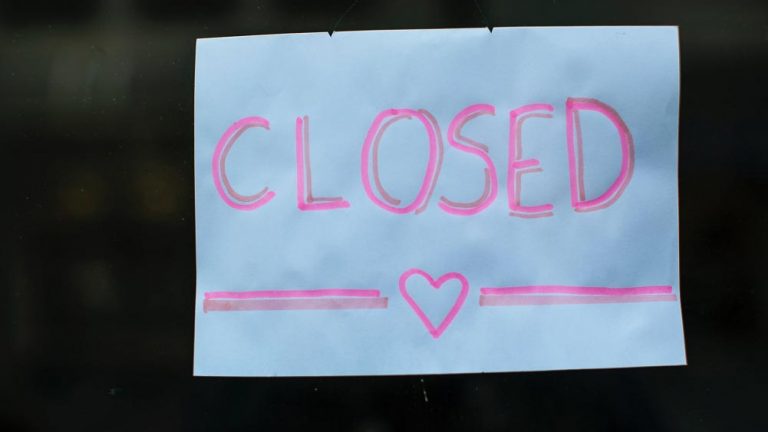Are you an entrepreneur or a business owner? Maybe you like one of these choices more than the other. Or maybe you’re thinking, “What’s the difference?”
The difference between an entrepreneur and a business owner is easy to miss. People often use these labels together, suggesting they have the same meaning. But there are four major differences between business owners and entrepreneurs.
Before getting into those differences, let’s look at the meanings of these words.
What Is a Business Owner?
A business owner is simply anyone who owns a business. A business owner is generally thought of as a person who both owns and runs a company or organization.
Business owners can range from one or two people who own a small or “mom and pop” store to people who own big corporations with offices in different locations. Popular titles for business owners include chief executive officer (CEO), president, founder, etc.
What is an Entrepreneur?
An entrepreneur is someone who creates a new business, but takes on more risk compared to a traditional business owner.
Many people often think of entrepreneurs as innovators who introduce new ideas, products, and services to their customers and to the general public. In other words, entrepreneurs are also business owners, but not all business owners are entrepreneurs.
Differences Between Entrepreneurs and Business Owners
Here are four points that show the difference between an entrepreneur and a business owner.
- Motivation
Business leaders have different reasons for starting businesses. Business owners might build a business when doing so seems like the next natural step in offering products or services to potential customers.
Other reasons business owners start a business include wanting to work for themselves, seeing an opportunity to make more money, or the chance to spend more time doing something they enjoy.
For example, someone who enjoys baking might start their own business selling delicious treats. This person could further build their business by offering catering services.
Entrepreneurs are more likely to start a business as a new solution to a current problem.
Entrepreneur examples include the founders of popular gig economy businesses such as Uber and Doordash.These companies created convenient ways for customers to use smartphone apps for daily routines such as transportation and food delivery.
- Innovation
However, entrepreneurs focus more on new ways of doing business. They’re more willing to try ideas that similar businesses haven’t tested yet. Since entrepreneurs are trying something new, they’re also willing to spend time teaching potential customers about their new product or service.
- Growth
Growth is a common major goal for business owners and entrepreneurs. However, these two groups of leaders differ in how they try to grow their businesses. Business owners take a step-by-step approach to building a successful company.
Some small business owners focus on growing different parts of their business, while staying in their community or state.n Business owners of larger companies think about growing by adding more products or services. They might also consider adding one or more stores or offices in other parts of their city, or even expand to one or more nearby cities.
Entrepreneurs are more interested in growing as quickly and as widespread as possible.
They want to have statewide, and preferably, nationwide customers. Entrepreneurs are also open to the possibility of their business becoming an international success.
- Risk
Starting any kind of business almost always comes with risks for business owners and entrepreneurs. So, how do these two groups deal with risk? Many business owners stay hopeful while being careful.
Business owners usually take small risks. Some examples include spending a small amount of money on a new product or trying a marketing campaign that could help their business grow.
For business owners, the most important part of taking a risk is to make sure there’s a backup plan or some other way to handle any loss of money or customers if a new idea doesn’t work out.
Entrepreneurs are also hopeful and optimistic about new ideas. But unlike business owners, entrepreneurs are more likely to go all in with new ideas. Entrepreneurs tend to put more of their hope in their own research or thought process for why their new idea should work.
For them, any problems or losses from taking a risk are just lessons for how they can change to make the idea work.
Final Thoughts on the Difference Between an Entrepreneur and a Business Owner
There’s more than one way to start and run a successful business. When it comes to business owners and entrepreneurs, neither label is superior to the other.
Business owners:
– Start a business to provide a proven product or service to customers.
– Learn from leading business leaders in their industry.
– Take a step-by-step approach to growth.
– Take risks while having a backup plan.
Entrepreneurs:
– Start a business to provide a new solution to a current problem.
– Spend more time explaining to possible business customers, investors, and others how the new idea works.
– Try to grow their business as quickly as possible.
– Go “all in” when taking business-related risks.
So, are you an entrepreneur or a business owner?
Knowing which style fits you can help you better understand how to start and run your own successful business.
Also read: You’ve started a business – now what?
Image by StartupStockPhotos from Pixabay





